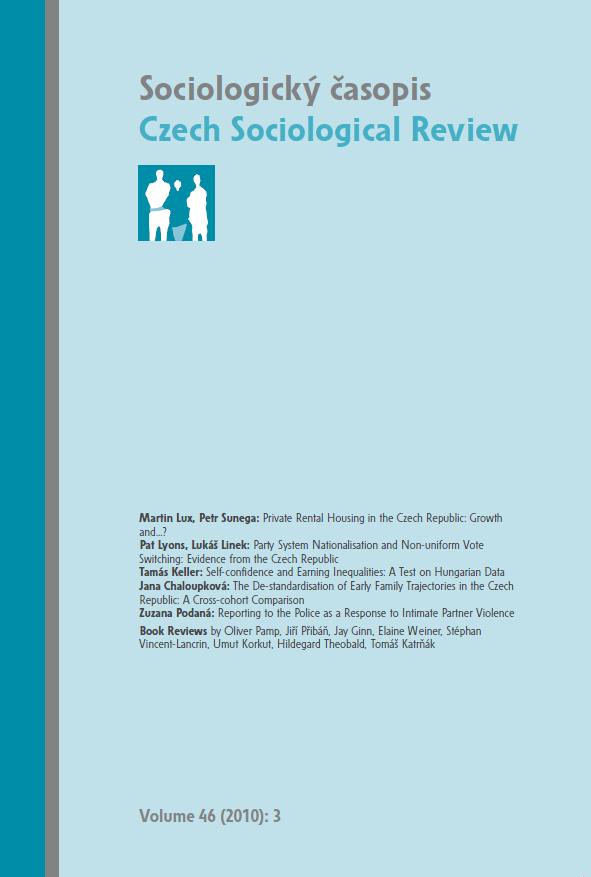Party System Nationalisation and Non-uniform Vote Switching. Evidence from the Czech Republic
Party System Nationalisation and Non-uniform Vote Switching. Evidence from the Czech Republic
Author(s): Pat LyonsSubject(s): Social Sciences
Published by: AV ČR - Akademie věd České republiky - Sociologický ústav
Keywords: party system nationalisation; vote switching; ecological inference; Czech Republic
Summary/Abstract: National rather than regional party systems are the norm in most democratic states. This has been interpreted as meaning that most voters view inter-party competition in the same way. With a high level of party system nationalisation the relative proportion of electoral support attracted by parties across all constituencies tends to be very similar although the absolute level of party support changes across elections. Sociological and institutional explanations have been used to account for party system nationalisation. Both of these explanations have generally made causal inferences using aggregate data. The link between party system nationalisation and the individual voter has not been examined in the same detail. Here this link is explored using an ecological inference analysis of vote switching. This research, using the Czech Republic as a case study, shows that the presence of high party system nationalisation evident across a pair of elections may be associated with nonuniform electoral swings. These results demonstrate that evidence of party system nationalisation should not be taken to mean that all voters view electoral choices in the same way.
Journal: Sociologický časopis / Czech Sociological Review
- Issue Year: 46/2010
- Issue No: 03
- Page Range: 375-399
- Page Count: 25
- Language: English

